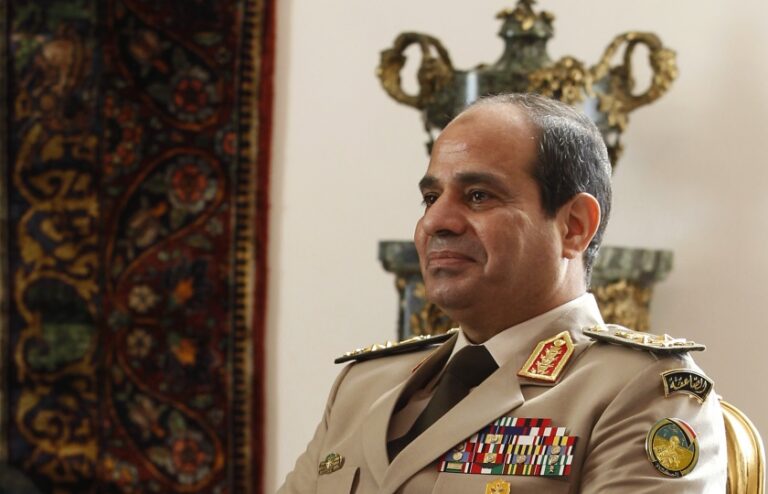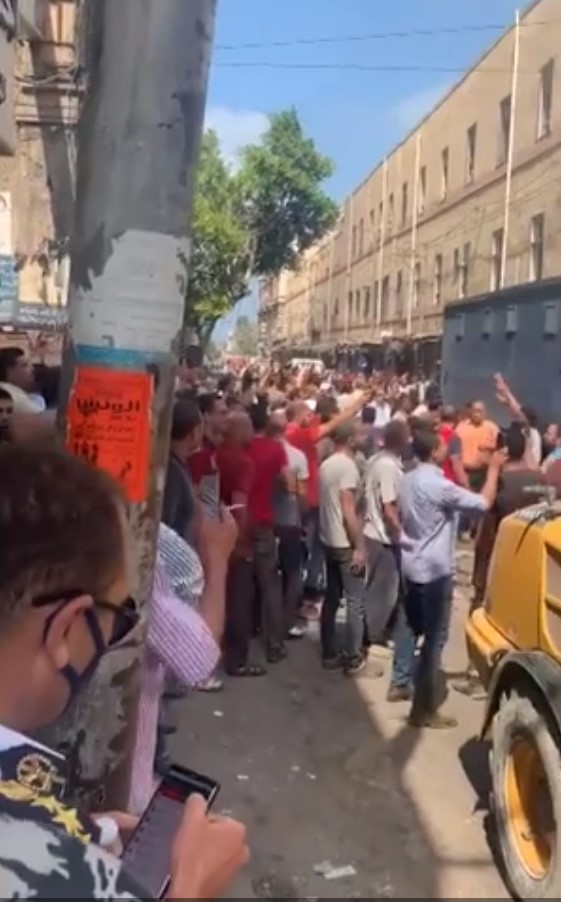Anger was sparked after General Abdel Fattah al-Sisi visited France and his meeting with French President Emmanuel Macron, as many Egyptian politicians and activists commented, showing anger at the visit. Al-Sisi’s visit to Paris comes amid popular campaigns to boycott French products, a campaign that has been going on for more than 40 days due to French newspapers publishing insulting cartoons of the Prophet of Islam, Muhammad, peace be upon him. The boycott campaigns in Egypt and many Arab and Islamic countries tried to stop France with Macron’s statements, but the Muslim people did not accept his statements.
Some saw al-Sisi’s visit and his meeting with Macron as a provocation to Muslims’ feelings, especially after he announced the expansion and increase of economic and investment activities between Egypt and France amid the boycott campaigns. The only provocation was not over al-Sisi’s visit but instead extended to the general’s statements during the press conference in which he claimed that arrests and human rights violations in Egypt are necessary to protect society.
Al-Sisi also claimed that Egypt has 55,000 civil society organisations, saying that it is an original and significant part of the civil work that we seek to partner the government with civil society, he said. Al-Sisi’s statements about civil society organisations come amid severe crackdowns on these organisations, and after a few days of violent criticism of his regime due to the arrest of members of the Egyptian Initiative for Personal Rights.
The arrest of the aforementioned organisation’s members were met with widespread objections from the United Nations and European capitals before the Egyptian authorities released them in response to pressures and appeals. Despite the release of the EIPR members, an Egyptian court supported the government’s decision to seize their money, which observers saw as a continuation of harassment of civil society organisations.
Continuing pursuits
Civil society organisations in Egypt have suffered from unprecedented crackdowns since the 2013 military coup and al-Sisi’s seizure of power. According to many human rights activists and organisations, independent non-governmental organisations are about to disappear from Egypt due to the crackdowns and aggressive security prosecutions.
A recent report published by Amnesty International during the past year revealed that civil society organisations are subjecting their members to arrest and politicised trials, in addition to electronic spying by the al-Sisi regime. The report pointed out that the Egyptian authorities, in recent years, have harassed civil society and undermined the freedom to form or join associations through an ongoing criminal investigation into non-governmental organisations.
Amnesty International indicated that this harassment is carried out through a strict law to suppress NGOs, a law that has previously been widely criticised. She added that the authorities’ investigations included dozens of human rights defenders and NGO employees under the pretext of receiving foreign funding. She emphasised that many of them could face prison terms if found guilty, as investigative judges have ordered a travel ban on at least 31 non-governmental organisation employees.
Al-Sisi’s regime froze the assets of 10 individuals and seven human rights organisations, while the authorities closed al- Nadeem Centre for the Rehabilitation of Victims of Violence and Torture. The report revealed a wave of cyberattacks supported by government agencies, which included multiple attempts to gain access to the email accounts of several prominent Egyptian jurists and civil society organisations.
Defective law
According to human rights organisations, the law regulating NGO’s work in 2017 allowed for unprecedented levels of repression and criminalising the work of many NGOs, making their independent work impossible. After widespread criticism and internal and external pressure, al-Sisi requested a review of the law in November 2018. Still, the amendments introduced by parliament to the law did not fulfill the requirements and did not grant the right to freedom of association.
The United Nations High Commissioner for Human Rights, Prince Zaid bin Raad al-Hussein, said, in a statement, that the issuance of a repressive law for non-governmental organisations in Egypt would further restrict the field of human rights monitoring. He explained that the al-Sisi regime’s law would seriously harm human rights, leaving defenders of those rights more vulnerable to sanctions and retaliation than what happens. He added that the text of the law contradicts Egypt’s obligations under international human rights law. It is noteworthy that the websites of most human rights organisations and civil societies are blocked from internet users inside Egypt, and hundreds of members of these organisations are behind the walls of prisons and detention centres.





Recent Comments